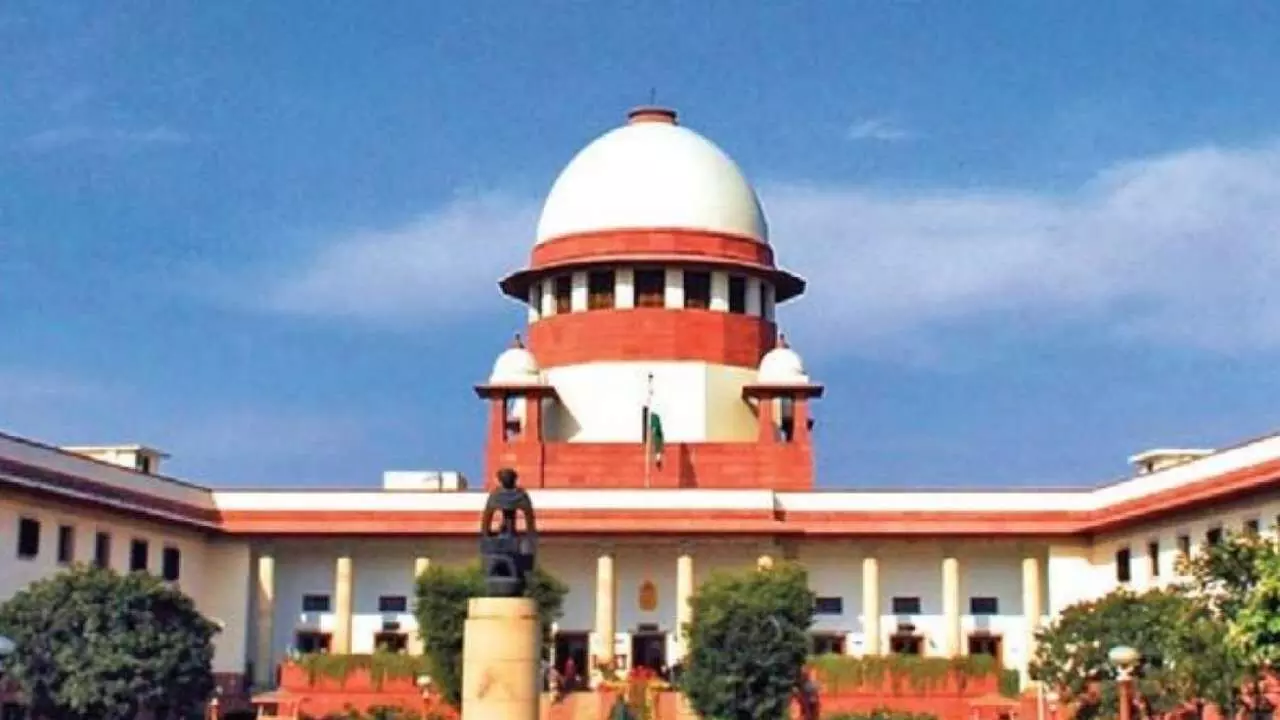
SC reserves judgement on journalist Rana Ayyub's appeal of summons in money laundering case
text_fieldsNew Delhi: On a petition from journalist Rana Ayyub challenging the summons issued by a special court in Ghaziabad in the money laundering case, the Supreme Court on Tuesday postponed delivering its verdict.
A justice V Ramasubramanian and Justice J B Pardiwala bench declared that it will rule on the claim. Advocate Vrinda Grover testified for Ayyub during the hearing and presented, “Can her personal liberty be deprived by a procedure not authorised by law?” She submitted that the Ghaziabad special court has no jurisdiction to try the offence as the alleged act is said to have been committed in Mumbai. Grover said the Enforcement Directorate (ED) has attached the journalist’s personal bank account in a bank at Navi Mumbai in which around Rs 1 crore was lying.
Solicitor General Tushar Mehta, appearing for the ED, said the prosecution complaint has been filed in the Ghaziabad court by the agency as part of the cause of action that had arisen in Uttar Pradesh, where a lot of people, including from Ghaziabad, contributed to her crowdfunding campaign. He said the money laundering offence is not an independent offence and is always connected to a scheduled offence for which an FIR was lodged at Indirapuram police station of Ghaziabad.
Mehta said arguments advanced by the other side is that if a person chose to launder money in Singapore or Thiruvananthapuram, the agency has to go there and lodge a case.
“Sorry, this is not the scheme,” he said, adding that Ayyub raised funds through the online platform ‘Ketto’ in the name of helping slum dwellers, COVID-19 patients and people of Assam which resulted in the collection of Rs 1 crore, out of which Rs 50 lakh fixed deposit was done in a personal account. He said, “Money was shown by fake bills, groceries, among others, and was used for personal luxury items and consumption.” On January 25, the top court had asked a special court in Ghaziabad to adjourn the proceedings in the money laundering case against Ayyub scheduled for hearing on January 27 to a date after January 31.
In her writ petition, Ayyub has sought quashing of the proceedings initiated by the ED in Ghaziabad citing lack of jurisdiction as the alleged offence of money laundering occurred in Mumbai.
On November 29 last year, the special PMLA court in Ghaziabad took cognisance of the prosecution complaint (charge sheet) filed by the ED and summoned Ayyub.
The ED charge sheet was filed under section 45 read with section 44 of the Prevention of Money Laundering Act (PMLA), 2002.
“I have perused the above-mentioned prosecution complaint and have also gone through the prosecution papers as well as documents, including statements.
“From the perusal of the entire record, there is sufficient evidence as to a prima facie case for taking cognisance against Ms Rana Ayyub with regard to the commission of the offence,” the special court judge had said. The special court had said Ayyub’s alleged crime involves taking money illegally from the general public in the name of charity via Ketto — an online crowdfunding platform — in three campaigns, without any approval, raising a huge sum in the bank account of her sister and father, and transferring it into her own bank account which was not used for the intended purpose. On October 12 last year, the ED filed a charge sheet against Ayyub, accusing her of cheating the public and using Rs 2.69 crore she got in charity for creating personal assets, and also violating the foreign contribution law.
“Rana Ayyub launched three fundraiser charity campaigns on the ‘Ketto’ platform, starting from April 2020 and collected funds totalling Rs 2,69,44,680,” the ED had said in a statement.
The campaigns, it had claimed, were meant to raise funds for slum dwellers and farmers, relief work for Assam, Bihar and Maharashtra, and help Ayyub and her team help those impacted by a coronavirus in India.
“Ayyub utilised these funds to create a fixed deposit of Rs 50 lakh for herself and also transferred Rs 50 lakh to a new bank account. Investigations found that only about Rs 29 lakh was used for relief work,” the ED had claimed.
With PTI inputs






















